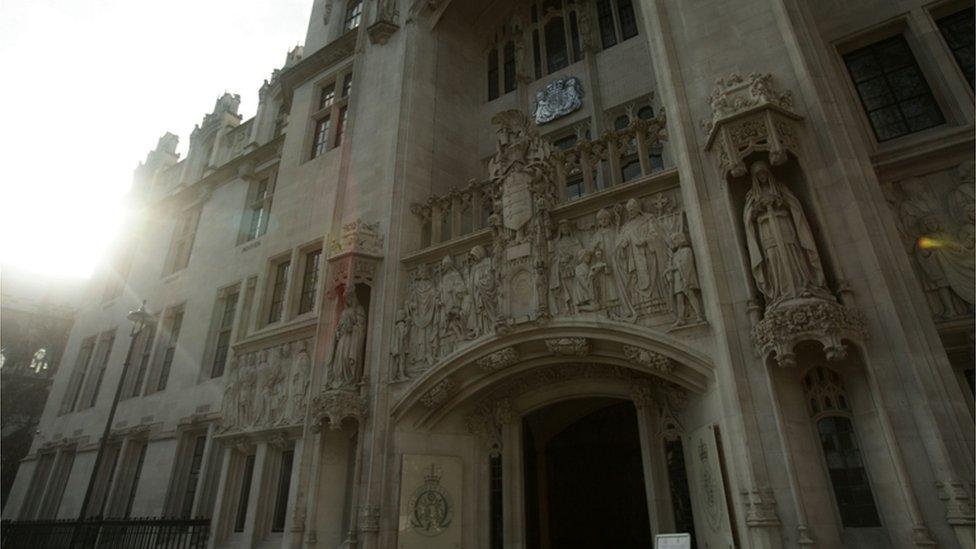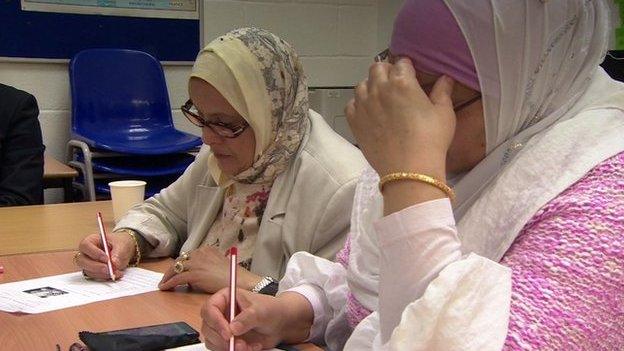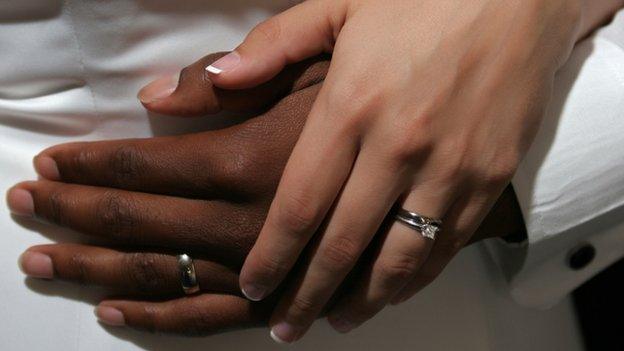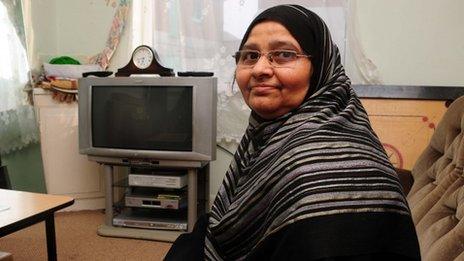Immigrant spouses must speak English, court rules
- Published

The Supreme Court has rejected a challenge against immigration rules requiring people to speak English before joining spouses in the UK.
The case was brought by two female British citizens whose husbands, from Yemen and Pakistan, want to come to the UK to be with their families.
Currently, the men must learn English and pass a test at an approved centre.
Their wives argued this was not feasible and breached their right to a family life. The judges did not agree.
The London court heard that Saiqa Bibi and Saffana Ali both claimed their husbands would not be able to pass a test before coming to the UK.
They argued the men would have to learn computer skills and travel long distances to take their English tests.
As such, their right to a private and family life under article 8 of the European Convention on Human Rights (ECHR) was being breached, the court heard.

What are the rules?

Since late 2010, the spouse or civil partner of a British citizen or person settled in Britain must pass an English language test before coming to the country.
Before the amendment to the immigration rules, they were only required to demonstrate such knowledge two years after entering the UK.

The panel of five judges were asked to rule that the pre-entry measure was "unreasonable, disproportionate and discriminatory".
They unanimously dismissed the appeal and decided it did not infringe article 8., external
However, the judges indicated that the way the scheme operated might be unlawful and asked the women's lawyers to present further arguments about it.
They also suggested that exemptions should be made in cases where it was impractical.
The Supreme Court judgment follows earlier rulings in the High Court and Court of Appeal that there was no disproportionate interference with family life.
Rosie Brighouse, of the human rights campaign group Liberty, said there was disappointment the court did not agree on the rule's "discriminatory effect".
However, she welcomed its recognition that the Home Secretary's "harsh and unreasonable guidance" put many couples in "an impossible situation, and may well be unlawful".
- Published2 August 2015

- Published4 November 2014

- Published25 June 2014

- Published18 May 2014

- Published1 December 2012

- Published16 December 2011

- Published26 July 2011